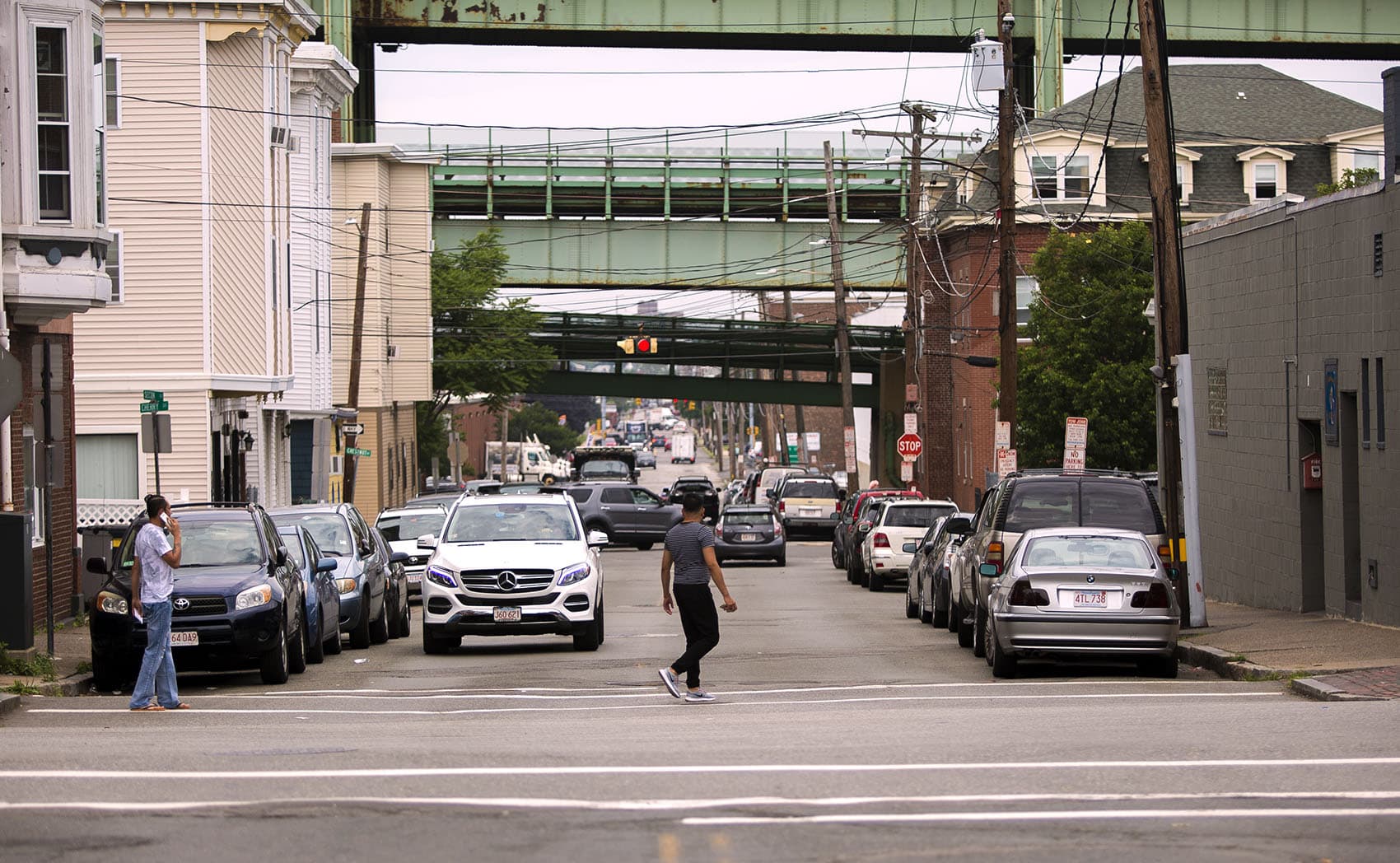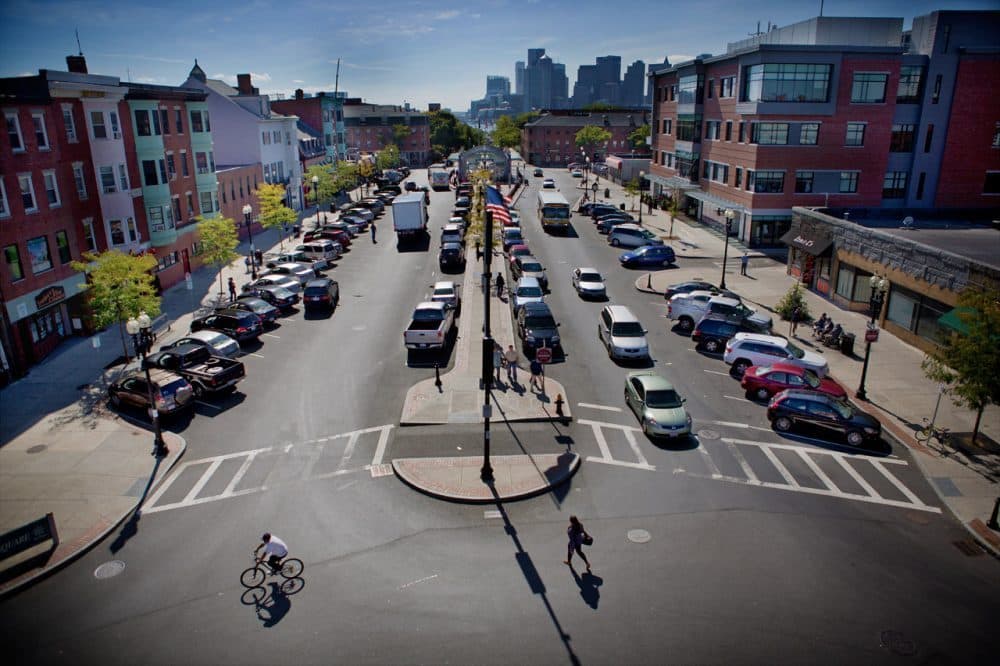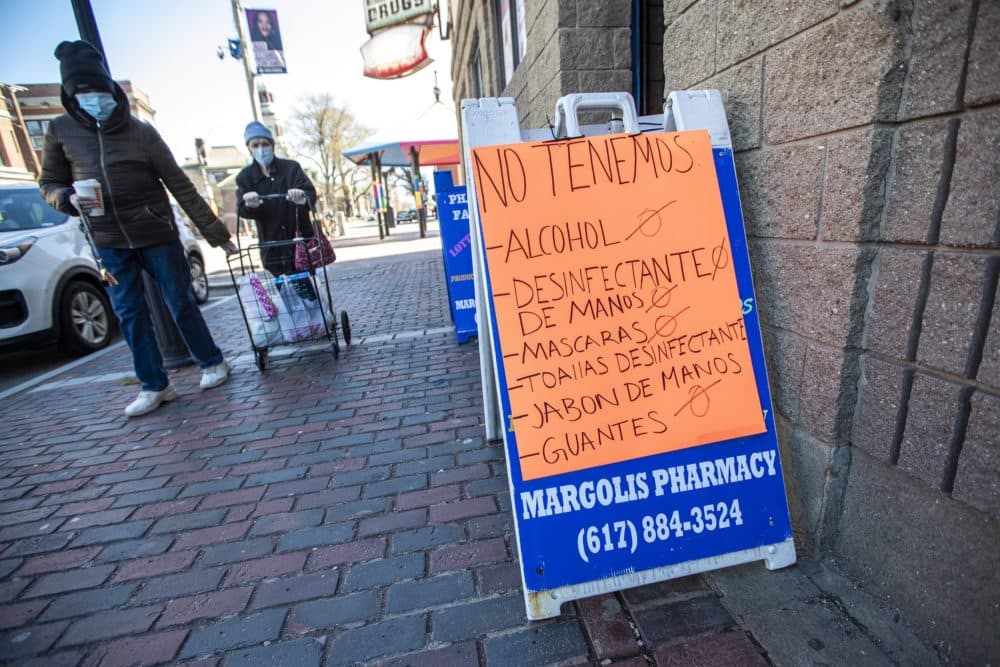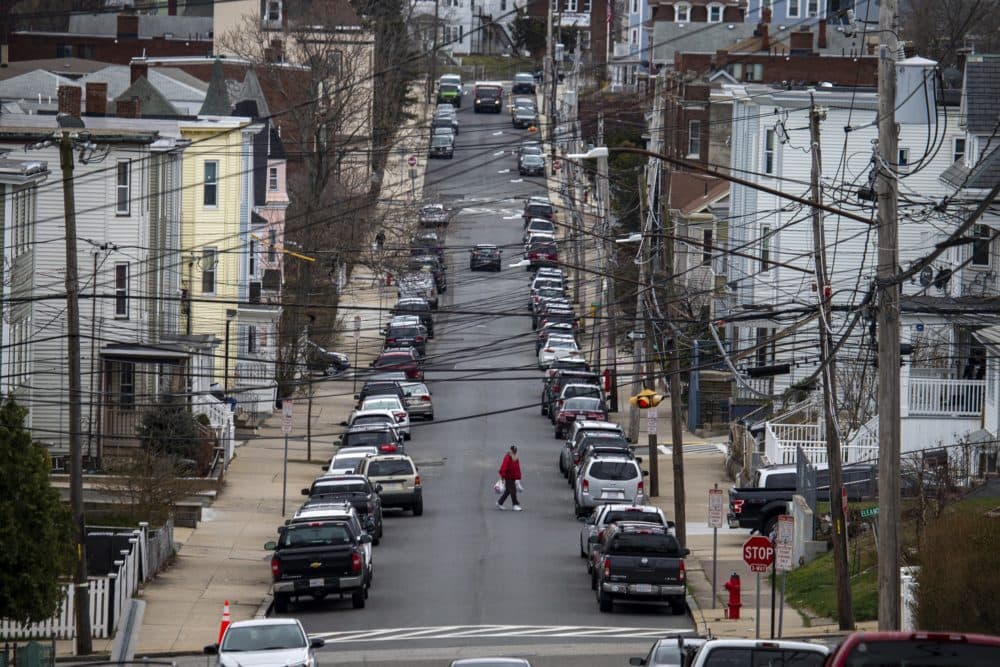Advertisement
Coronavirus Coverage
Mom-And-Pop Stores In Hard Hit Chelsea And Eastie Left Wondering: Where's The Support?

En español, traducido por El Planeta Media.
Business was good for Claudia Gallego — good until the state of emergency was declared.
She owns three businesses in East Boston. Her bar has been closed since mid-March, but her bodega and butcher shop have stayed open until now.
They’re essential services — though business over the last two months is down 80%, and she's losing money. Some customers are afraid to leave the house. Others just can't afford to buy food.
"We have applied to all the aid and loan programs we have been told about," said Gallego. "But so far we have not received any help."
Gallego applied to receive funds under the $659 billion Paycheck Protection Program — or PPP — the massive federal bailout fund set up to help small firms on a first-come-first-serve basis.
Six weeks later, Gallego still hasn’t received any money. And she’s not alone.
A survey by the nonprofit East Boston Main Streets found that among 105 Latino-owned business, just five had been awarded a loan under the first round of PPP.
"It hurts me to say this," said Gladys Oliveros, who heads the nonprofit. "All the hairdressers, all the barbershops, the photography studios, the clothing stores. None of them has been able to [get bailout money], nor will they."

Oliveros said there are two major obstacles to getting the money: Many of the mom-and-pops don’t have their accounting in order, which puts them at a big disadvantage against small businesses with as many as 500 employees — the maximum number allowed under the program. Second, when one or more owners are undocumented, Oliveros said, the government isn't allowing them to receive bailout money.
"The shops here in East Boston are the heart of the neighborhood," Oliveros said. "That is the source of life for all of us, where we buy our daily food."
Tumbleweeds On Broadway?
East Boston's neighbor to the north is Chelsea — the city with the highest infection rate in Massachusetts by far.
"We could have tumbleweeds going down Broadway unless we figure out a way to take care of small mom-and-pop businesses," said Chelsea Chamber of Commerce Executive Director Rich Cuthie.
While other chambers of commerce around the country are talking about celebrating a "grand reopening," Cuthie said he can't fathom having that mindset.
"I'm like, are you kidding me? We're trying to keep people alive," he said.

Cuthie's afraid of what could happen if the mom-and-pop businesses at the heart of the city’s shopping district are left to fend for themselves.
And even when businesses do reopen, he said, there will be another problem: Will people eat and shop and spend money in Chelsea — an epicenter of the coronavirus in Massachusetts — if there isn't a vaccine?
"We can say we're open for business all day long," he said, "but if the customers don't feel safe and confident in going back ... these are all things that are impacting what our downtown business districts are going to look like."
Cuthie said the first round of PPP left out many of the businesses that are the lifeblood of Chelsea. But he's seeing signs that the second round is going to smaller companies.
Hope For Round Two
A recent national study from the Cambridge-based National Bureau of Economic Research found that businesses in areas where the coronavirus did the least damage were twice as likely to receive federal PPP money as those in the hardest hit areas. Just 15% of businesses in the hardest hit areas had received the money, versus 30% in least affected areas during the first round of the program.
Still, the federal Small Business Administration, which is managing the program, claims PPP has already helped nearly 100,000 businesses in Massachusetts with some $15 billion dollars in aid.
Not everyone's going to make it, let's be really clear, because this is this is a very, very dark storm.
Glynn Lloyd
The SBA also said the current round of funding has been more effective at helping smaller businesses.
"I want people to know that there are resources that can help them," said Bob Nelson, district director of SBA's Massachusetts office.
Nelson is encouraging businesses that haven't applied to get-on-board. For round two, he said, the SBA is taking more steps to make sure even the smallest businesses get help.
"We're here and we're accessible," he said. "All [business owners] have to do is send this simple email to the Massachusetts district office ... and say, 'I need help, my preferred language is this,' and we'll connect folks with resources."
One of the changes under the second round of PPP helped 27-year-old Johanna Mateo get a loan — one that doesn't have to be paid back if 75% of it goes to payroll.
Advertisement
Along with her three siblings, Mateo owns Catracho's, a Honduran restaurant in Chelsea. She said she went through a traditional bank to apply for PPP under the first round and was unsuccessful. Then, with the help of a local organization, she turned to PayPal, one of the finance tech companies allowed to process PPP money under the second round.
Mateo says the business received less than $20,000 — not a huge amount, but enough to keep the lights on and make hires if needed.
"Because of the lack of steady cash flow that we suffered in April ... it just gave us a little bit of breathing room as we continue to assess the situation and adapt to what might be the new normal," she said.

The new normal could mean the end for some businesses, said Glynn Lloyd, who heads the nonprofit Business Equity Foundation. Before the coronavirus, the group helped grow small black and Latino businesses into larger companies.
Now, Lloyd said, the goal is survival, and that means helping companies navigate the federal bailout.
"Not everyone's going to make it, let's be really clear, because this is this is a very, very dark storm," Lloyd said. "You’re going to see winners and losers, and those who have quicker access to resources had a better chance of winning."
Lloyd said federal bailout money won’t be a panacea. But for some companies, it could help them survive an economic period that's drawing an increasing number of comparisons to the worst periods in U.S. history.
This segment aired on May 13, 2020.

